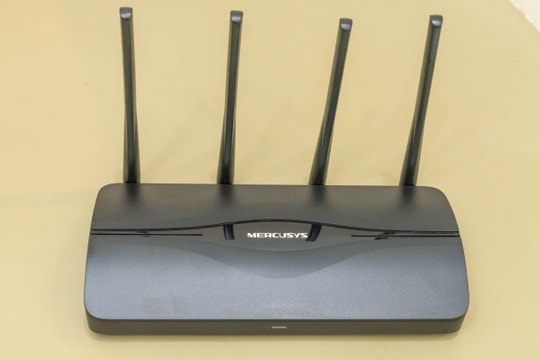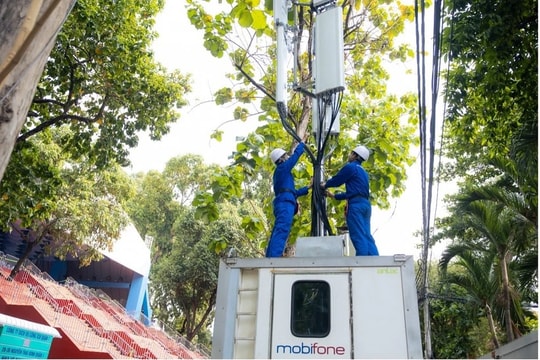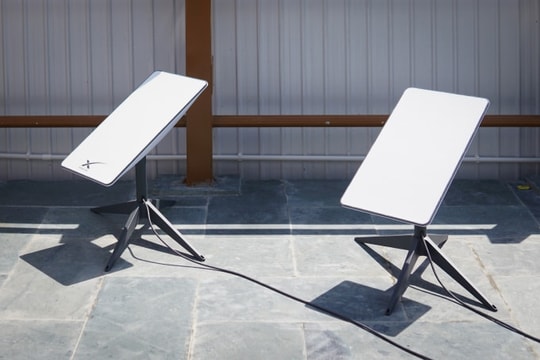On some technology forums, this issue is also being discussed in the context of four submarine fiber optic cables having problems, causing Wi-Fi to often be unstable and many people have to move their modems closer to have a more stable connection.

User leaves Wi-Fi modem on desk. Photo: Infinigeek
In fact, Wi-Fi waves, if set at a sufficient level, will not cause harm to human health. According to a 2018 study by Professor Martin Pall, Wi-Fi devices all emit electromagnetic radiation (EMF). Depending on the type of radiation, the level of impact on the nervous system, endocrine changes, and metabolism will be different. In particular, Wi-Fi waves emit non-ionizing radiation, which is considered to have little or no impact on humans. In addition, measurements of EMF levels from multiple Wi-Fi sources and Wi-Fi-enabled devices operating at the same time, in the same room, are all much lower than the human exposure limit.
However, according to the International Agency for Research on Cancer (IARC) and the Environmental Health Trust (EHT), users should still place their Wi-Fi modems in appropriate locations and distances to minimize the impact on health and spirit.
Radiation specialist Defender Shield suggests that the transmitter should be placed 10 feet (3.1 m) away in the center of the home, and not in the bedroom. The modem should also be placed high enough to maintain distance and cover the entire space, improving the transmission efficiency. The transmission level should be set to a moderate level, avoiding the highest setting as it can cause some health problems.
According to The Verge, some people choose to put their Wi-Fi modem in a metal box with holes (similar to the principle of a Faraday cage) to reduce radiation. This also works, but is not completely necessary because it can reduce the ability to transmit.
In addition to Wi-Fi transmitters, ETH also recommends that common wireless devices in the home also emit radiation, albeit very small, such as smart speakers, game consoles, phones, TVs, Bluetooth mice and security camera systems. Therefore, users should turn off the device when not in use, especially at night when going to bed, or prioritize connecting to wired devices.
According to VnExpress










.jpg)

.jpg)








.png)


.jpg)


